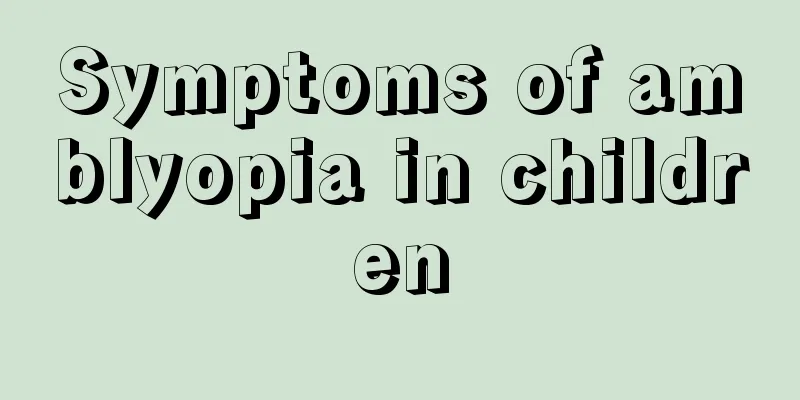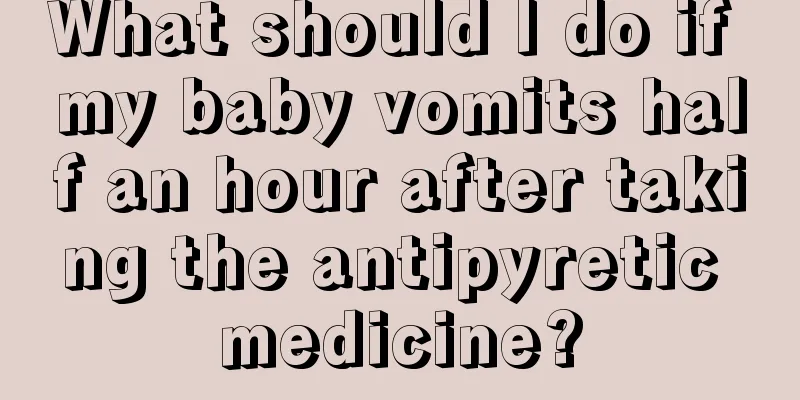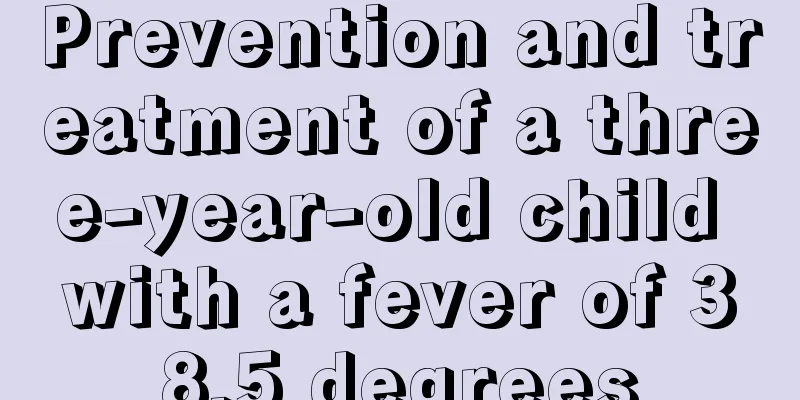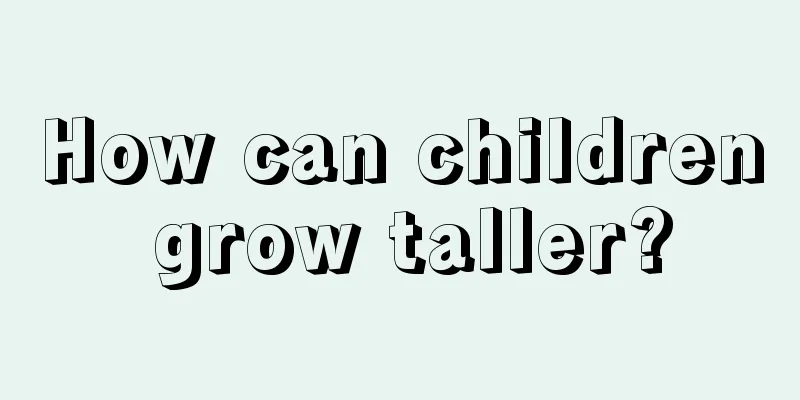What are the symptoms of rhinitis in children? These manifestations are the most common!
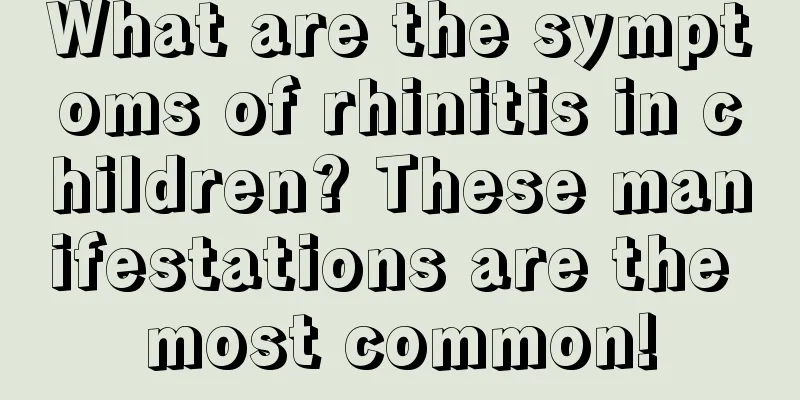
|
Children are very prone to rhinitis. For example, some children will develop rhinitis after a viral cold. Catching a cold, lack of vitamins, sudden changes in temperature, or children playing in cold water can all cause rhinitis in children. Of course, malnutrition may also be the cause. Pediatric patients will have the following obvious symptoms. 1. Symptoms of chronic rhinitis in children The main symptoms of chronic rhinitis in children are nasal congestion and decreased sense of smell. Chronic rhinitis will be alleviated during daytime activities, but will be aggravated at night when resting. When lying on one side, the lower nasal cavity is blocked, while the upper nasal cavity is well ventilated. When lying on the other side, nasal congestion occurs in the other nasal cavity. The nasal discharge is mucous and is often accompanied by headache, dizziness, decreased sense of smell, etc. Chronic hypertrophic rhinitis is often characterized by persistent nasal congestion, mucous or mucopurulent nasal discharge, and may also cause tinnitus, hearing loss, headache, insomnia, mental depression, etc. 2. Symptoms of acute rhinitis in children At the onset of the disease, there is mild chills and fever, general discomfort, a burning sensation in the nasopharynx, dryness, itching, and sneezing in the nose. After one to two days, your nose will gradually become blocked, with a large amount of clear nasal discharge, decreased sense of smell, and headaches. After three to five days, the clear nasal discharge will turn into purulent nasal discharge, and the nasal congestion will worsen. If there are no complications, recovery will occur in about a week. and poor adaptability to the outside world, so children are more likely to suffer from rhinitis. Most cases of rhinitis in children are allergic, with symptoms including nasal congestion, sneezing when exposed to cold air, clear nasal discharge, postnasal drip, memory loss, and poor sense of smell. Many children may also experience itchy nose, itchy eyes and tearing, which is manifested by repeated rubbing of the nose (picking the nose) and rubbing of the eyes, which is called allergic rhinitis and conjunctivitis. 3. Chronic rhinitis in children It is characterized by cold nose and loss of smell. In chronic simple rhinitis, nasal congestion is relieved during daytime activities, but worsens at night or when sitting still. When lying on one side, the lower nasal cavity is blocked, while the upper nasal cavity is well ventilated. When lying on the other side, nasal congestion occurs in the other nasal cavity. The nasal discharge is mucous and is often accompanied by headache, dizziness, decreased sense of smell, etc. Chronic hypertrophic rhinitis is often characterized by persistent nasal congestion, mucous or mucopurulent nasal discharge, and may also cause tinnitus, hearing loss, headache, insomnia, mental depression, etc. |
<<: What are the main symptoms of rhinitis in children?
>>: Children's fever-reducing folk remedies should be used reasonably
Recommend
Why does a child shiver when sleeping?
Parents all hope that their children can have a g...
What should I do if my three-month-old baby has a cough? Simple and effective method
A baby's cough can make parents very worried,...
When is the vaccination schedule for children?
As the saying goes, it is better to be safe than ...
What happened to the child's broken nose?
Nowadays, most families have only one child, and ...
How to make mashed potatoes for babies?
Mashed potatoes can be said to be a very suitable...
What food is best for children with cough and wheezing?
When a child coughs and wheezes, it is a chronic ...
What are the differences between baby indigestion and enteritis?
The gastrointestinal health of babies is very fra...
Overview of baby's one-year-old development indicators and intellectual development
A one-year-old baby goes through a critical turni...
What to do if a boy has heavy moisture?
Excessive moisture can be removed through exercis...
How to correct a child's hunchback?
When families see that their children cannot walk...
Reasons and solutions for 16-month-old babies not liking to eat
I have a sixteen-month-old baby at home, but what...
What is good for children to eat for breakfast? Nutritional matching is very important
Mothers need to pay more attention to the nutriti...
What to do if the inside of baby's lips turn purple
If your baby's lips turn purple, you must tak...
Why does my baby's hair grow slowly?
Some babies' hair grows slowly after birth. A...
What should I do if my 5-month-old baby has a fever and diarrhea?
Babies always make us feel cute, and we want thei...

